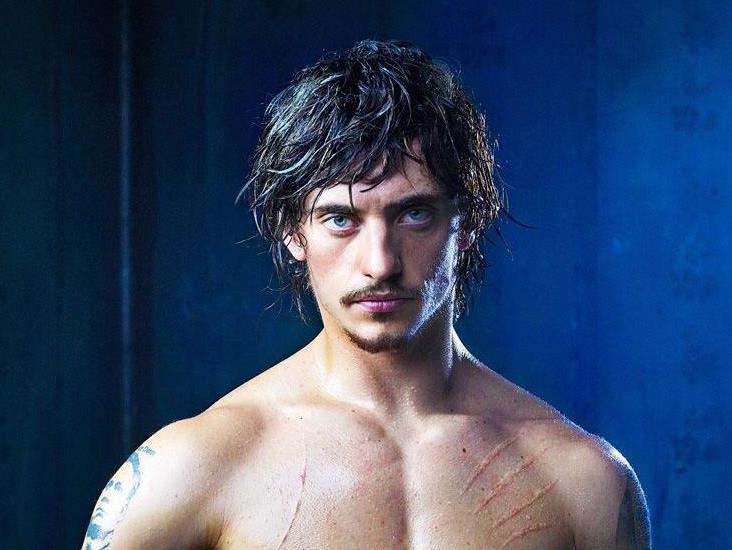With aptitude and acclaim comes unpredictability and arrogance, or so many a narrative that surrounds talent figures thrust into the spotlight attests. The compilation of soundbites and news footage that provides Dancer with its introduction appears primed to tell the tale of Ukrainian ballet prodigy Sergei Polunin within this framework; indeed, prevailing public perception of the man who became the British Royal Ballet’s youngest-ever principal dancer at the age of 19 conforms to this formula. And yet, Steven Cantor’s (Tent City, U.S.A.) documentary aims not to reinforce, but to explain how and why this contention proves false.
Accordingly, from Polunin’s first years in his homeland to the career that followed after youthful skill saw him move to the United Kingdom, then train, advance, achieve and amaze, Dancer charts what seems to be the usual exploits. Intensive rehearsing, stardom, media attention, backlash to the kind of bad behaviour that comes with fame: they all follow to, as does an ostensibly predictable trajectory. History dictates that the so-called “James Dean of the ballet world” then quit his prestigious post at 22, shocking the industry and sparking more public scrutiny. His rapid rise begets a rapid fall; however, that’s where the feature starts to get interesting.
Assembled in standard fashion from an array of interviews and archival footage — the latter clearly benefiting from the prevalence of cameras recording Polunin’s every footstep both before and after he stepped into the spotlight — Cantor’s documentary doesn’t traverse new terrain as far as the real-life ups and downs of striving, succeeding and then struggling to cope are concerned. What it does in its ample sights of its subject at a variety of ages and in various situations and settings, though, is paint a portrait of his reaction. Like other star- and celebrity-focused efforts, it’s the details that matter: not in the ins and outs of his heartbreak at being away from his family, or his pain coursing through his tattooed limbs from choosing such a demanding profession, but in the changing expressions plastered across his face.
Early in the piece, Polunin’s mother, Galina Polunina, speaks of this flexibility as a child. It’s a point of pride, and also mentioned by others that experienced the first flourishes of his talent. In fact, watching him leap, twirl, bend, twist and seemingly fly through the air, it’s the term that instantly comes to mind. Still, across Dancer’s 85-minute running time, it’s not Polunin’s physical malleability that demands focus — as impressive as it is, of course — but the morphing joy, determination, duty, pressure, sorrow, loss, angst, burden, relief and renewed passion that surges through him, often saying as much as the audio snippets used as narration.
So it is that, when the music video for Hozier’s ‘Take Me to Church’ that Polunin is best known for by non-ballet aficionados plays in its entirety as the documentary works towards his conclusion, all of those emotions seethe through his performance, and all prove much more meaningful thanks to the journey that precedes it. The full force of feeling behind his efforts is why the clip struck such a chord when it was first released in 2015, after all — and why, even for those only just learning the entire reality behind Polunin’s footwork while watching Dancer now, it feels like a culmination, a climatic point, an act of catharsis, and a new beginning.
Rating: 3 stars out of 5
Dancer
Director: Steven Cantor
UK | Russia | Ukraine | USA, 2016, 85 mins
Release date: 1 December
Distributor: Vendetta
Rated: M
Actors:
Director:
Format:
Country:
Release:





